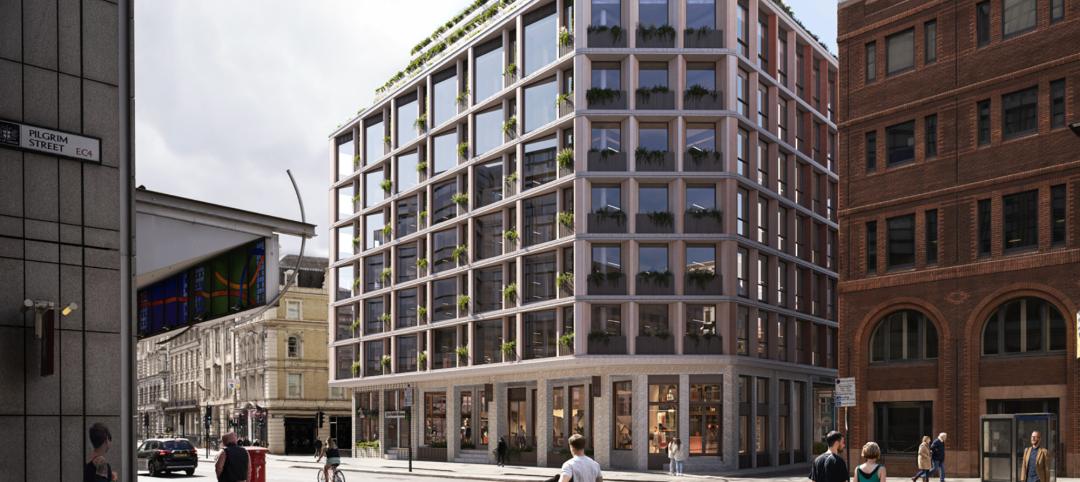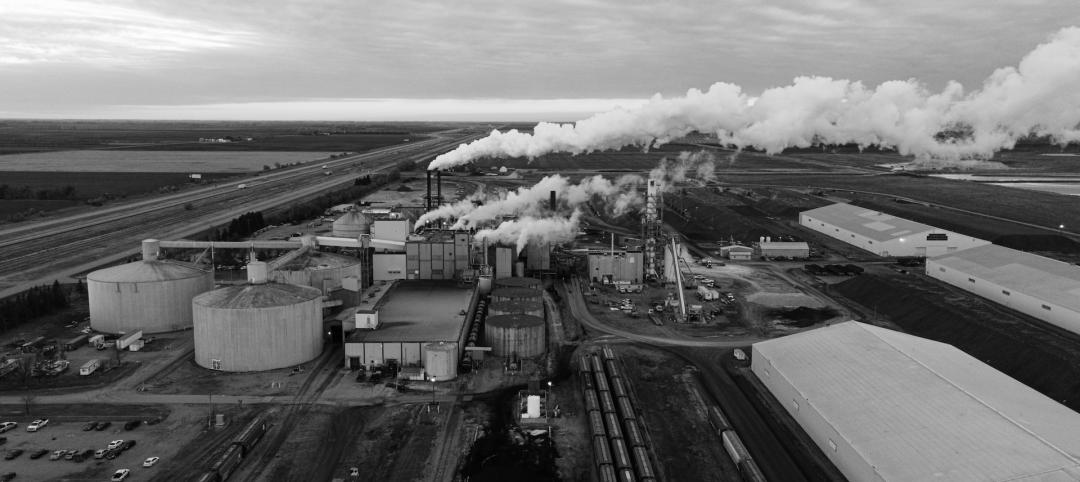Washington, D.C. (July 6, 2016) – U. S. Green Building Council (USGBC) CEO and founding Chairman Rick Fedrizzi is joining the International WELL Building Institute as CEO and Chairman of its Board of Directors. Fedrizzi will assume the position of Chairman immediately and assume the CEO role November 4, 2016, when he will add his executive leadership to the IWBI team full-time after he steps back from USGBC.
IWBI administers the WELL Building Standard (WELL), an evidence-based system for measuring, certifying, and monitoring the performance of building features that impact health and well-being.
“As we continue to grow and expand the adoption of both the WELL Building Standard and the WELL Accredited Professional (WELL AP) program globally, we enthusiastically welcome Rick Fedrizzi into this leadership role to help lead IWBI to new heights,” said IWBI Founder Paul Scialla. “I can’t think of a person better suited to lead this process than Rick. His management experience and global vision will be huge assets to IWBI, and we couldn’t be more excited to have him.”
“I’m very excited about the opportunity to take on a leadership role with IWBI and build upon the work we’ve been doing at USGBC,” said Fedrizzi, who announced last summer his plans to leave the USGBC, which he co-founded in 1993. “Our buildings and communities should help humans thrive. Sustainability plus health is a powerful lens through which to view the world, and WELL has approached this goal in a similar way to how we developed the LEED green building program.
“Leveraging the strengths of both USGBC and IWBI will advance a much needed change in the improvement of the wellness and quality of life of our families, friends and colleagues through a healthier, more sustainable built environment,” added Fedrizzi.
The WELL Building Standard V1 was introduced in October 2014. To date, WELL has registered and certified over 200 projects, totaling more than 45 million square feet across 21 countries.
Fedrizzi co-founded USGBC while he was environmental marketing director at United Technologies Corporation. He has served as USGBC’s CEO since 2004, and during the past decade, has led USGBC’s efforts to establish green building as a global mainstream movement. During his 12 years as CEO, he has championed the idea of improving the world’s building stock in ways that improve the health, safety and well-being of the people who occupy them, and has been a force for driving collaboration across the built environment continuum.
Fedrizzi serves on numerous boards and advisory committees, including the Center for Health and the Global Environment at the Harvard T.H. Chan School of Public Health, whose mission is focused on the design and development of leading-edge research on how to improve human health and well-being through the built environment, as well as Bank of America’s National Community Advisory Council, Clinton Global Initiative’s Scaling Sustainable Buildings Action Network, Delos’ Advisory Board, Watsco, Energy Focus, VIEW, and Global Green. In 2015, he authored Greenthink: How Profit Can Save the Planet, which recently received the IPPY Gold Medal in the Public Affairs Category.
Fedrizzi holds a BA from Le Moyne College and an MBA from Syracuse University, where he recently received the Arents Award. A native of Syracuse, he spent more than 25 years at United Technologies Corporation, culminating in his role as in-house environmental marketing consultant. In 2001 Rick founded Green-Think, an environmentally focused marketing and communications consulting firm. He transitioned from the role of volunteer founding chair of USGBC during this time to becoming its full-time CEO in 2004.
About the International WELL Building Institute
The International WELL Building Institute (IWBI) is a public benefit corporation whose mission is to improve human health and well-being through the built environment. IWBI administers the WELL Building Standard (WELL) – a performance-based system for measuring, certifying, and monitoring features of buildings that impact the health and well-being of the people who live, work, and learn in them. Fulfilling the vision of IWBI Founder Paul Scialla, IWBI has a pioneering altruistic capitalism model that will address social responsibility and demonstrate a sustainable model for philanthropy. IWBI has committed to direct 51% of net profits, after taxes, generated by registration fees, certification fees, and recertification fees received from real estate projects applying for WELL Certification toward charitable contributions and impact investment focused on health, wellness, and the built environment. IWBI was established by Delos in 2013 pursuant to a Clinton Global Initiative commitment to improve the way people live by developing spaces that enhance occupant health and quality of life by sharing the WELL Building Standard globally. www.wellcertified.com
Related Stories
Sustainability | Jul 27, 2023
USGBC warns against building energy code preemptions, rollbacks
In a recent editorial, the USGBC cited a growing number of U.S. state legislators who are “aiming to roll back building energy code standards and/or preempt local governments from advancing energy-efficient building codes.”
Resiliency | Jul 27, 2023
'Underground climate change' can damage building foundations, civil infrastructure
A phenomenon known as “underground climate change” can lead to damage of building foundations and civil infrastructure, according to a researcher at Northwestern University. When the ground gets hotter, it can expand and contract, causing foundations to move and sometimes crack.
Sustainability | Jul 19, 2023
California lawmakers approve governor’s plan to accelerate green construction
California lawmakers recently approved Gov. Gavin Newsom’s infrastructure streamlining plan that aims to accelerate clean energy and infrastructure projects.
Sustainability | Jul 13, 2023
Deep green retrofits: Updating old buildings to new sustainability standards
HOK’s David Weatherhead and Atenor’s Eoin Conroy discuss the challenges and opportunities of refurbishing old buildings to meet modern-day sustainability standards.
Mass Timber | Jul 11, 2023
5 solutions to acoustic issues in mass timber buildings
For all its advantages, mass timber also has a less-heralded quality: its acoustic challenges. Exposed wood ceilings and floors have led to issues with excessive noise. Mass timber experts offer practical solutions to the top five acoustic issues in mass timber buildings.
Codes | Jul 10, 2023
Water Demand Calculator outperforms traditional plumbing codes for energy, carbon, and water savings
Using IAPMO’s Water Demand Calculator tool can result in energy, carbon, and water savings as compared to using traditional plumbing specification methods in plumbing codes, according to a study by Arup.
Contractors | Jun 30, 2023
Construction industry task force aims for standardized carbon reporting
A newly formed Associated General Contractors of America (AGC) task force on decarbonization and carbon reporting will address the challenges around reporting and reducing carbon emissions in the construction industry.
Apartments | Jun 27, 2023
Dallas high-rise multifamily tower is first in state to receive WELL Gold certification
HALL Arts Residences, 28-story luxury residential high-rise in the Dallas Arts District, recently became the first high-rise multifamily tower in Texas to receive WELL Gold Certification, a designation issued by the International WELL Building Institute. The HKS-designed condominium tower was designed with numerous wellness details.
Green | Jun 26, 2023
Federal government will spend $30 million on novel green building technologies
The U.S. General Services Administration (GSA), and the U.S. Department of Energy (DOE) will invest $30 million from the Inflation Reduction Act to increase the sustainability of federal buildings by testing novel technologies. The vehicle for that effort, the Green Proving Ground (GPG) program, will invest in American-made technologies to help increase federal electric vehicle supply equipment, protect air quality, reduce climate pollution, and enhance building performance.
Industrial Facilities | Jun 20, 2023
A new study presses for measuring embodied carbon in industrial buildings
The embodied carbon (EC) intensity in core and shell industrial buildings in the U.S. averages 23.0 kilograms per sf, according to a recent analysis of 26 whole building life-cycle assessments. That means a 300,000-sf warehouse would emit 6,890 megatons of carbon over its lifespan, or the equivalent of the carbon emitted by 1,530 gas-powered cars driven for one year. Those sobering estimates come from a new benchmark study, “Embodied Carbon U.S. Industrial Real Estate.”

















